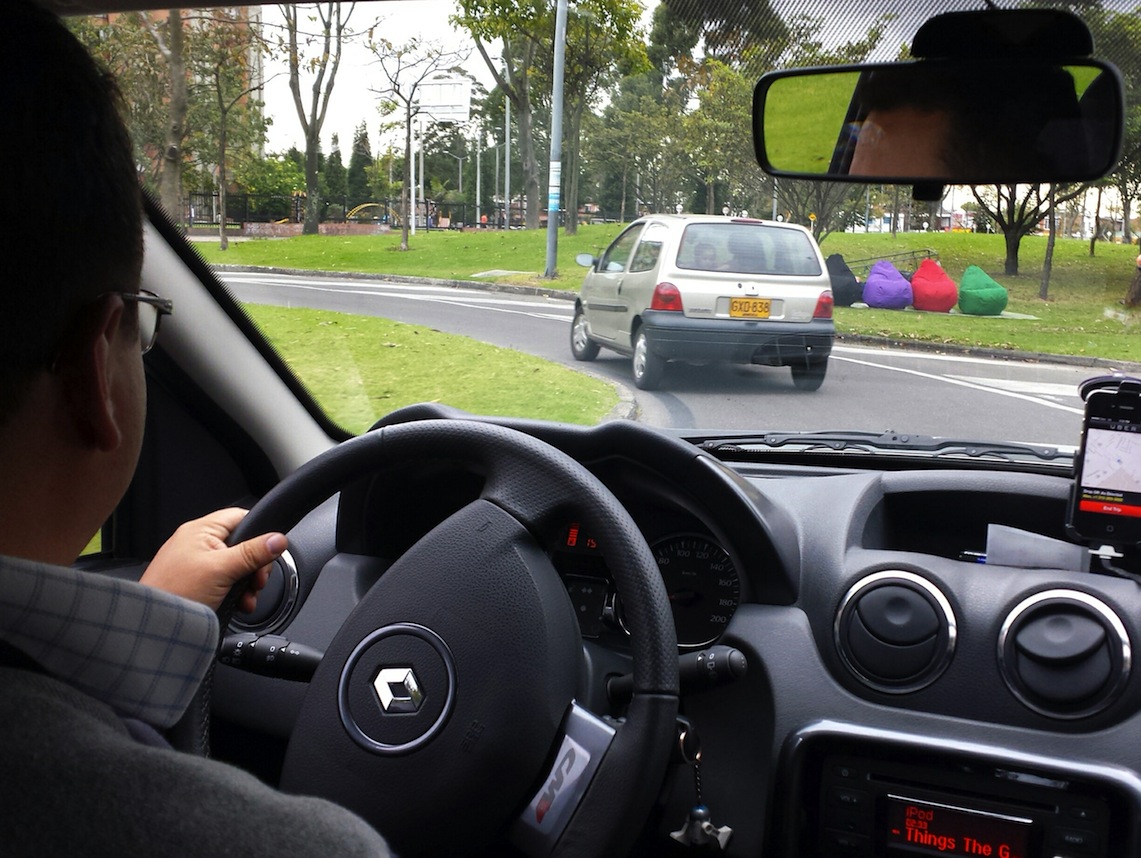 Photo by Alexander Torrenegra via WikiCommons
Photo by Alexander Torrenegra via WikiCommons Los Angeles’ KCBS channel 2 news contacted me three times last week for an on-camera interview.
The station’s reporters had read a story in the Journal about a Palestinian Uber driver who kicked two (unnamed) Jewish women out of his car after they left the annual Celebrate Israel Festival.
I am one of those women. I realize that, with this admission, I am forfeiting my anonymity.
First was a call from CBS 2’s Dave Lopez, who told me I had an “interesting story” to tell. On camera, he would ask me some questions, such as did I know the driver was Palestinian when I got into his car? (Not sure how I would besides, of course, by using my Arab-Detecting Spidey Sense.)
Then CBS’ Rachel Kim called, and offered me a little more time to explain several concerns. To my surprise and to my relief, I got the empathy of someone who clearly understood the vast complexities of conflict that exist among cultures that are as ancient as the Abrahamic religions.
I declined both invitations to share my Uber plight on TV and its implications for Middle East peace.
In regard to the Israeli-Palestinian conflict, I doubted that my 1-star Uber experience would be of any consequence. Recounting my case of ride-sharing discrimination on TV, I thought, pales in comparison to the tales of young soldiers risking their lives at the Israeli border.
“I got kicked out of an Uber. I got a new Uber,” I told both reporters, noting that if my driver, whose Uber profile said his name was Mustafa, masterminded to delay my dinner plans by 10 minutes, then he did so with skillful success.
“I declined both invitations to share my Uber plight on TV and its implications for Middle East peace.”
Uber didn’t respond to my incident report until the Journal reached out for comment, which I relayed was the real issue at hand. And anti-Semitic incidents in California have increased 27% from 2017 to 2018, according to the Anti-Defamation League, which is certainly worthy of some mainstream coverage.
But because my incident was resolved — Uber did eventually fire the offending driver — there is really nothing more to report. Except for my opinion — not about the incident, but about the aftermath.
While these reporters saw me as “the victim” of an Uber atrocity, I explained that many of their viewers might not, which became clear to me via several conversations.
As the Celebrate Israel Festival ended, young families with small Israeli flags made their way past security and back to their cars. I called an Uber to take me and my friend to a nearby restaurant.
Like second-nature, we hopped into the back seat and didn’t even notice the young driver until he asked us for a third time, “Which event are you coming from?” In that moment, I knew this wouldn’t end well.
“Get out of my car. I’m Palestinian,” he said while staring me down. I slowly slid back out to the public sidewalk and, in retrospect, to my safety.
Once out of harm’s way, my fumes as an American began to flare, so I offered Mustafa a few choice words of road rage that are indigenous to my hometown of Chicago.
My replacement Uber driver said, “I understand where he’s was coming from, you see, because you stole his land.” Hailing from Mississippi, he conveyed this sentiment with genuine gentility.
My colleague at work said, “Yeah, that’s tough. I can see both sides. Wait, we’re still talking about an Uber ride, right?”
My longtime friend of Mexican descent said, “Israel is corrupt; Jews control America; and the Palestinians have a right to defend themselves.” Hand-to-forehead. Repeat. Repeat again.
I felt confused, dispirited and like the butt of a weird joke. I thought it a relatively simple case of right and wrong, but I sorely underestimated how controversial even simple matters are when Israel is involved albeit, indirectly.
In the end, I was left bewildered at how, even among my friends, my bizarre Uber story left me in the astonishingly unpopular position of defending Israel’s right to exist — and my right to an Uber, even if the driver doesn’t like Israel.
Dayna Fields is a financial journalist in Los Angeles and winner of the Best Humorous Column award from the National Newspaper Association in 2014.






















 More news and opinions than at a Shabbat dinner, right in your inbox.
More news and opinions than at a Shabbat dinner, right in your inbox.